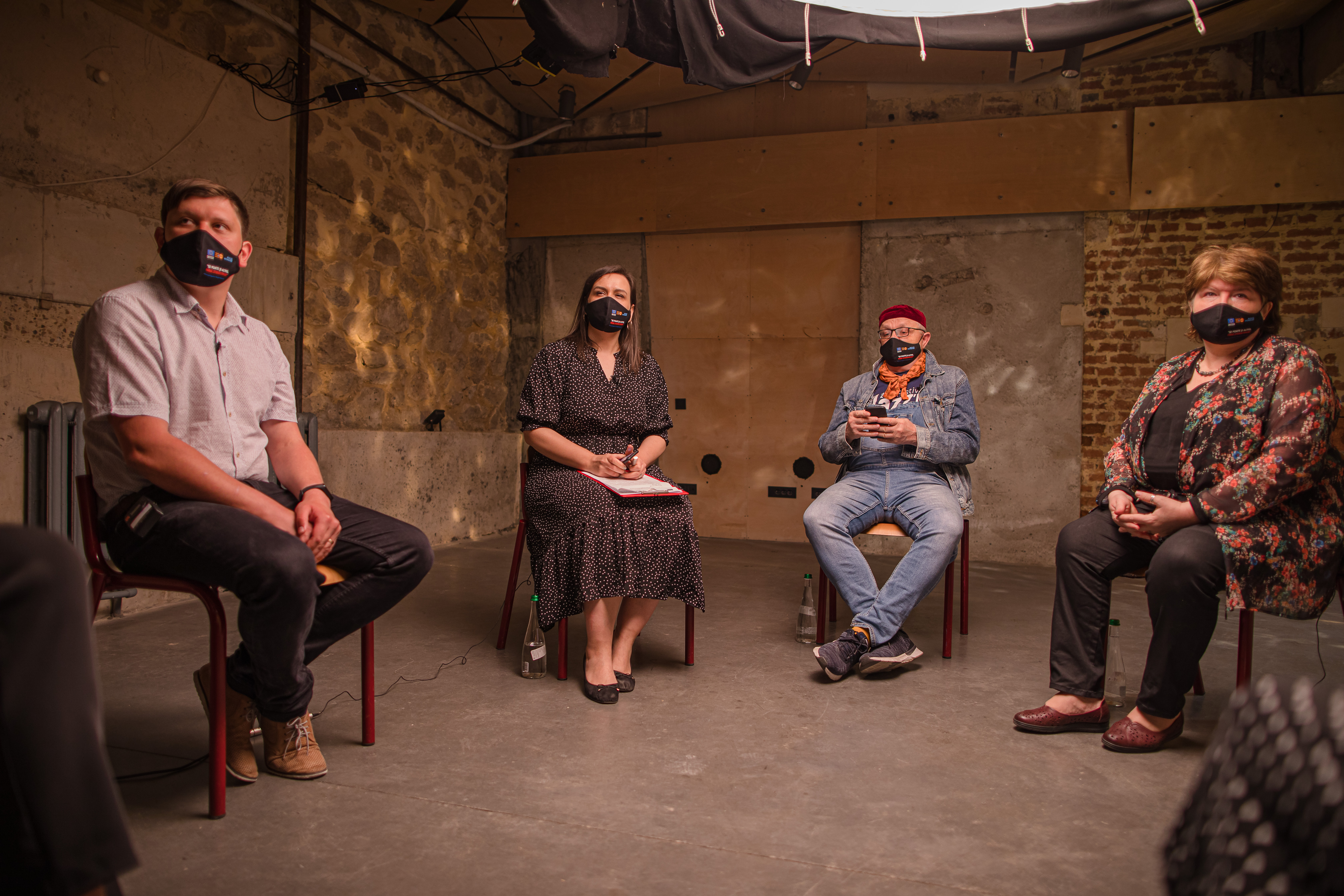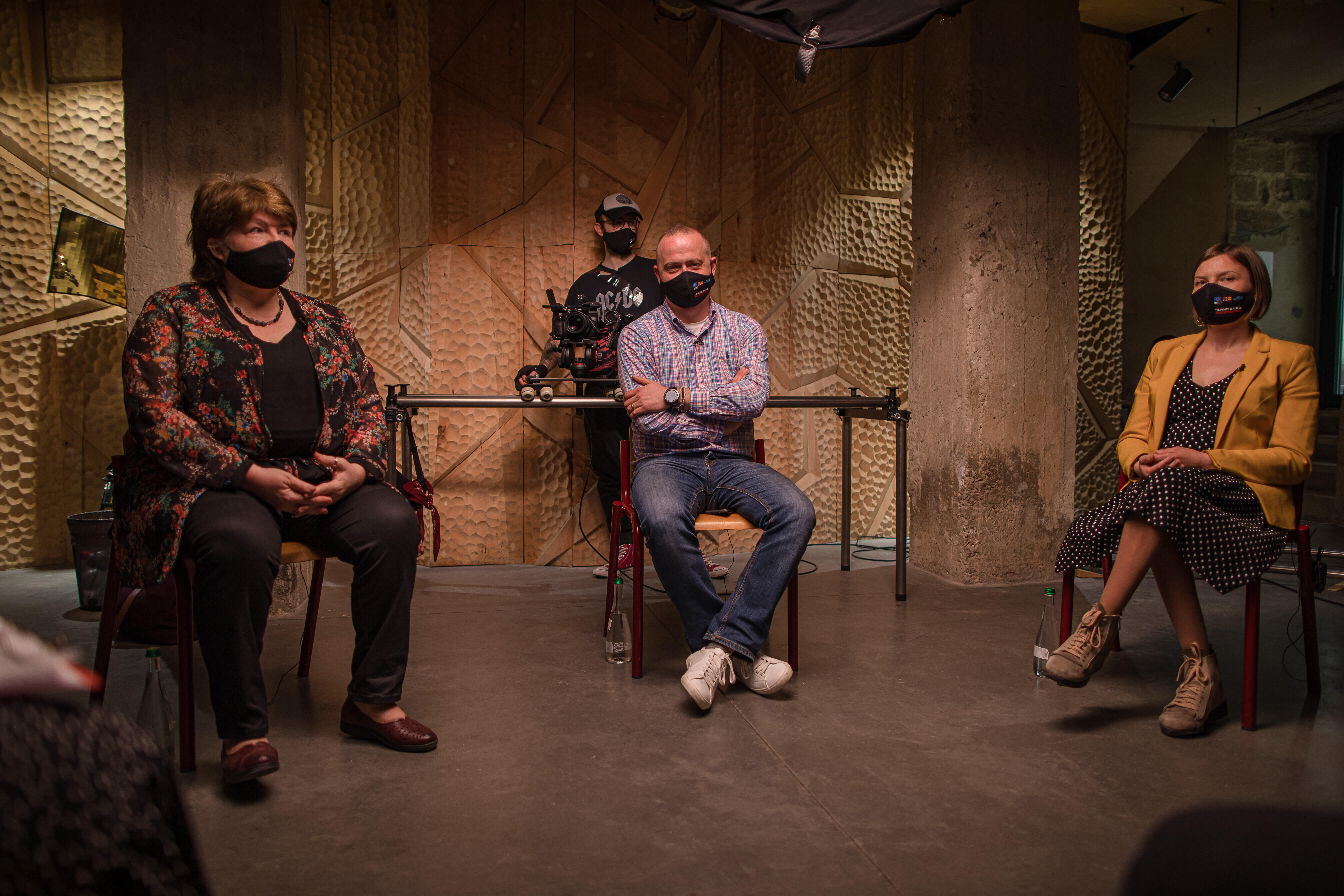Chisinau, June 7 - It can be done differently. Without stereotypes! Under this slogan, in the next two years, in Straseni and Falesti, an extensive awareness campaign will be carried out to contribute to combating gender stereotypes and gender-based violence.
The campaign is carried out under the regional program "Together against gender stereotypes and gender-based violence", funded by the European Union and implemented by UN Women and UNFPA to address gender stereotypes and gender-based violence in six countries of the Eastern Partnership: Armenia, Azerbaijan, Belarus, Georgia, Moldova and Ukraine.
The campaign activities are built based on the results of a regional study conducted in the countries where the program is implemented and a qualitative study conducted in Falesti and Straseni in order to identify gender stereotypes and inequalities that persist in these localities.
The results of the study in Straseni and Falesti, conducted based on discussions in focus groups showed that gender stereotypes determine unequal social positions for women and men. The leading role of the man in the society is clearly highlighted, but also the position of superiority of the man over the woman in the case of domestic responsibilities. Thus, one in two women who participated in the focus group discussions is responsible for both the kitchen, house cleaning, washing clothes and dishes, and the education and care of children, despite the fact that the majority (85%) of respondents, regardless of gender, support the idea of equal involvement. 84 percent of the participating women, with experience of living in a couple, confirm that in their families, the man is the one who makes the main decisions.
"The European Union supports equal opportunities for women and men. This campaign is a continuation of the European Union's efforts to combat gender stereotypes, prevent violence against women and promote gender equality in all areas of development. It is important to promote an equal and inclusive society for everyone”, said His Excellency, Peter Michalko, Ambassador of the European Union to the Republic of Moldova.
"Rigid gender roles have a negative impact on both men and women, limiting the role of men in supporting the family and linking women to household chores. These norms and stereotypes perpetuate gender inequalities, and could lead to violence and discrimination against women. Through this campaign, UNFPA Moldova supports interventions aimed at transforming discriminatory gender norms, roles and stereotypes”, said Nigina Abaszada, UNFPA Moldova Resident Representative.
"One of the factors hindering economic and democratic progress is gender inequality and unequal power relations between women and men in the public and private spheres. Inequalities are perpetuated because patriarchal social norms and gender stereotypes are deeply rooted in the family and society. Through this campaign, UN Women aims to challenge these stereotypes that cause discriminatory behavior that shape the perceptions of women, girls and boys about their role in the family and society”, said Dominika Stojanoska, UN Women Moldova Country Representative.

The campaign activities will address existing gender stereotypes in professions, gender roles in families and gender-based violence. In order to bring the message of the campaign closer to the people, in Straseni and Falesti, a mural will be made to illustrate equal rights and opportunities for women and men. Video and audio spots will be broadcast that will show why it is important not to take stereotypes into account when choosing a profession or building a family. The human histories of people who have shown that it is possible otherwise in sports, in the IT field, in education, in the family will be produced and disseminated to the public. No stereotypes.
The campaign was launched online, through a talk show, in which three men and three women, known in the public space of the Republic of Moldova, debated stereotypes deeply rooted in society about the role that a man or a woman should play at home and in society. The examples they discussed showed that it is possible otherwise. No stereotypes.
According to the Study on Gender Norms and Stereotypes conducted in the Eastern Partnership countries under the "Together Against Gender Stereotypes and Gender-Based Violence" program, funded by the European Union and implemented by UN Women and UNFPA, in the Republic of Moldova, 60% of respondents believe that women should take care of their family and household. And half of male and female respondents believe that a good wife should never question her husband's opinions and decisions, regardless of their own opinions.
The "Together Against Gender Stereotypes and Gender-Based Violence" program supports equal opportunities for women and men, addressing perceptions about the roles of men and women in the family and in society, and helping to eliminate gender-based violence.
With the support of the European Union, the two UN family member agencies work with government institutions and civil society partners in six countries to help combat gender stereotypes, increase men's involvement in household and childcare activities, and carry out activities to prevent the perpetuation of gender-based violence with the involvement of potential aggressors.
Media contact:
Ludmila Bogheanu, communication officer, Regional Program "Together against gender stereotypes and gender-based violence", tel. +37369403016, email: bogheanu@unfpa.org


